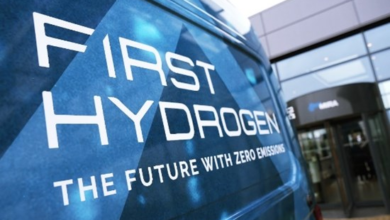The Clean Hydrogen Partnership to start funding round later this year
The Partnership will play a key role in the implementation of the European hydrogen strategy.

The European Commission has recently announced to set up the Clean Hydrogen Partnership, which would be built upon the work of the Fuel Cells and Hydrogen Joint Undertaking (FCH-JU), aiming to accelerate support for clean hydrogen technologies in the region.
Bart Biebuyck, FCH JU Executive Director, told H2Bulletin in a virtual interview that he expects that the partnership will be approved somewhere in October – “So we hope that we can do the first round of proposals as soon as possible after the approval,” he added.
He explained that the new proposed funding agency would refocus and reprioritise its works on hydrogen and promote the hydrogen economy in the region. The focus would be on production, distribution and storing of clean hydrogen and on end-users that are hard to decarbonise, such as heavy industries and heavy-duty transport applications.
FCH JU was set up in 2008 and since then has funded 285 research and demonstration projects, with a total funding budget of around € 1 billion. The organisation has played a crucial role in the promotion of fuel cell and hydrogen technologies. Although its funding remained Europe-centric, its message has resonated around the world. One of its recent achievements was the launch of the Hydrogen Valley Platform under the umbrella of Mission Innovation “Renewable and Clean Hydrogen” Innovation Challenge. The platform featured 32 hydrogen valleys from 18 countries on the platform. Among other aims, the Hydrogen Valley Platform is trying to raise awareness among policymakers, which is pivotal to support the hydrogen industry.
The European Green Deal has set an ambitious target of a 55% reduction in greenhouse emission by 2030. “And that’s why they need technology to be able to meet the targets,” Mr Biebuyck pointed out. The European Union has come forward with the European hydrogen strategy in July last year and set a 6 GW electrolysis capacity target for 2024 and 40 GW by 2030.
The Clean Hydrogen Alliance achieving the European Hydrogen strategy by 2030 will require around € 430 billion of investment. This is certainly an ambitious target with a substantial amount of investment.
The FCH JU director said: “We are a funding agency and not the only one. Germany, France, Spain and several other countries announced funds and supporting the hydrogen industry. So, we would soon see the maximum impact of the funding.”
“We need adequate funding to support big projects in all aspects. The Hydrogen sector asked for € 1.3 billion, the Commission gave us one billion euro, which I think is very good and answered the request of the industry,” he added.
Europe is leading the world in electrolyser technology and other segments of the hydrogen value chain. He said that the European hydrogen industry is going in the right direction with the right speed.
However, we are in a transition period towards green and sustainable energy. Today, we consume 10 million tonnes of hydrogen in the region, out of which only 4% come from renewable while the remaining is grey hydrogen. The aim now is to replace grey hydrogen with green. Nevertheless, the upcoming projects will allow (green hydrogen) to reach only 10% of what we consume today by 2024. Hence, we need to look as well at low carbon (blue) hydrogen to reduce the carbon footprint.
In 2020, the annual electrolyser production capacity in Europe was less than 1 GW. If it is to reach 40 GW, we need to scale up investment for production. Even if we manage to get 40 GW of green hydrogen capacity, it would still be insufficient as there would be more demand from downstream industries by 2030. Therefore, we have to invest in an intermediate solution with low carbon, such as blue hydrogen. This would eventually reduce grey hydrogen and help us reduce our carbon footprints.
Green hydrogen is uncompetitive at the moment, not due to CapEx but due to high OpEx. The high cost of renewable energy is the main culprit behind the slow deployment of electrolyser capacity. The situation would get better as we further commercialise the technology. Other countries have also started working on the hydrogen economy with projects announced in China, Australia and the US.
He added that Europe is aware of the market developments in the hydrogen industry. “Yes, we need to speed up. I believe we have all the right instruments in place, such as innovation funds and national strategies in many countries. I believe Europe is in a very good position,” concluded Bart Biebuyck.
